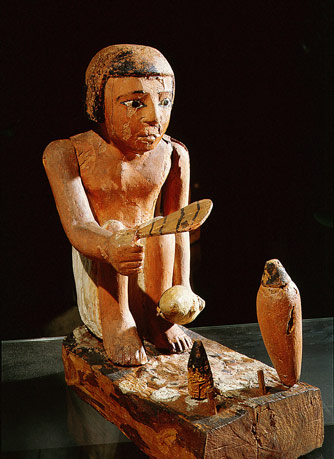Fr : version française / En: english version
The raw and the cooked
The question of when and how the cooking of food was invented will probably never be answered. Yet the discovery of cooking would profoundly alter the living conditions and even the morphology and metabolism of humankind. First, because cooking meat is easier on our jaws and intestines. But also because many plants are edible only when cooked. Cooking foods also extends their life, easing worries about where the next meal is coming from. During this same period people began hardening arrow tips in the fire, facilitating hunting. So Claude Levi-Strauss's metaphor "The Raw & the Cooked" to express the opposition between nature and culture is extremely apposite.





























